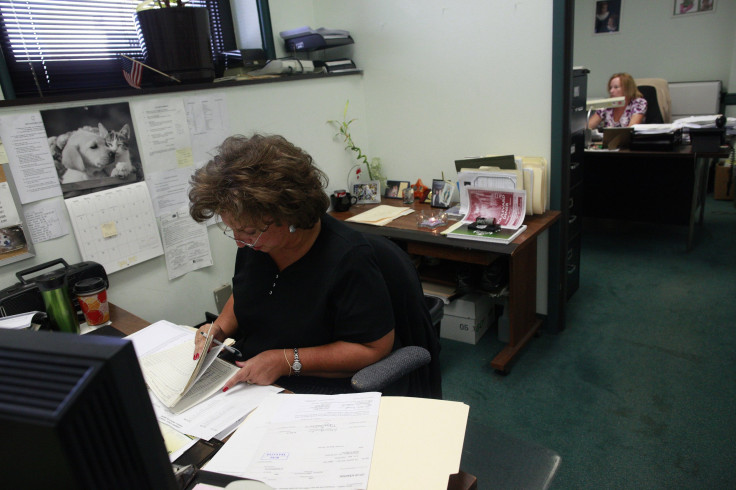Job Dissatisfaction: More Than A Quarter Of Americans Are Unmotivated Or Indifferent About Work, New Survey Says

More than a quarter of American workers are unmotivated at work or indifferent about their current jobs. The finding was part of a survey conducted by polling firm YouGov and commissioned by Bolste, an Arizona-based company that produces what it calls a business operating system to help manage workflow.
Twenty-six percent of those surveyed said they were either “indifferent” to their job or felt “unhappy ... unmotivated, bored and stifled” by their job. Just 25 percent of those polled said they were “extremely happy, motivated and stimulated” by their jobs. Another 42 percent described themselves as “somewhat happy.”
Previous polls have found comparable levels of malaise among the U.S. workforce. Last month, Gallup found just 33 percent of U.S. workers were “engaged” at their jobs, up from 32 percent in 2014. A Rasmussen College report that year also found nearly a fifth of Americans were unhappy at work.
Bolste CEO Leif Hartwig attributed the unease in part to the nation’s disintegrating work-life balance. Many employees communicate regularly with their bosses outside of work hours — a recipe for anxiety, in his eyes. “Now, it’s a 24/7 world,” he said. “It’s causing stress and it’s causing unhappiness.”
The poll also asked employees who receive “at least one irrelevant email every day” to identify what share of their work emails fit that description. Fourteen percent of those surveyed said more than 81 percent of the work emails they received were “irrelevant”; 16 percent said the figure was between 61 and 80 percent; 20 percent said it was between 41 and 60 percent.
In recent months, the Obama administration has hinted at the possibility of regulating after-hours work emails. Last fall, the U.S. Department of Labor said it would soon publish a “request for information” — an early step in the rulemaking process — to “gather information about employees’ use of electronic devices to perform work outside of regularly scheduled work hours and away from the workplace.” Labor advocates have pushed for restrictions on after-work emails in Germany, France and the United Kingdom.
The Bolste report surveyed 1,495 employees from Nov. 17 to 20, 2015. Its margin of error was 3 percentage points.
© Copyright IBTimes 2025. All rights reserved.






















